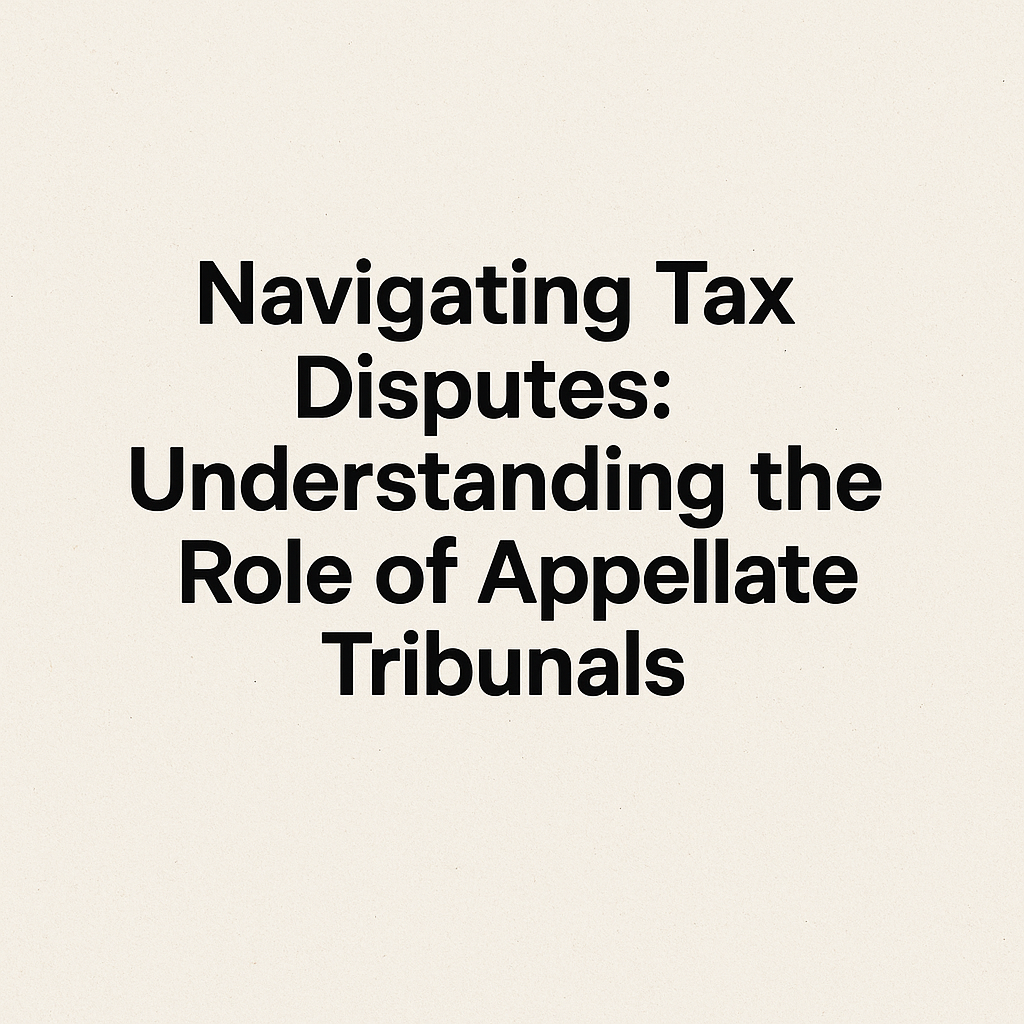In any legal system, the pursuit of justice is paramount. Within the intricate web of tax and administrative law, an Appellate Tribunal stands as a beacon of fairness and resolution. This vital institution serves as a pivotal platform for those seeking redressal from decisions made by lower adjudicating bodies. Let's delve into the significance of Appellate Tribunals, particularly in the context of tax matters, and explore their role in ensuring a just and efficient legal framework.
What is an Appellate Tribunal?
An Appellate Tribunal is an independent and impartial forum established to review decisions made by lower-level authorities, offering parties an avenue for appeal. Comprised of experienced and knowledgeable members, these tribunals possess the expertise needed to interpret complex legal provisions and ensure a thorough examination of disputes. Their decisions hold significant weight, often being final and binding, thus playing a critical role in upholding justice and maintaining the integrity of the legal system.
Appellate Tax Authorities in Bangladesh
In Bangladesh, the appellate process for tax disputes follows a structured path, providing clear guidelines for aggrieved parties to seek recourse. Let's explore the avenues available for appeal within the Bangladeshi tax framework:
1. Appeal to the Income Tax Appellate Tribunal (IJCT): Any individual dissatisfied with an order from the Tax Recovery Officer (TRO) can appeal to the IJCT, to whom the TRO is subordinate. The decision rendered by the IJCT on such appeals is final, providing a decisive resolution within 30 days of the original order.
2. Appeal to Additional/Joint Commissioner of Taxes or Commissioner of Tax: Assessees, excluding companies, have the option to appeal to the Additional/Joint Commissioner of Taxes, while companies can appeal to the Commissioner of Taxes. This appeal must be lodged within 45 days of receiving the original order from the Deputy Commissioner of Taxes.
3. Appeal to Commissioner of Tax: In cases where the order originates from the Additional/Inspecting Joint Commissioner of Taxes, the appeal is directed to the Commissioner of Taxes. Assessees must file this appeal within 45 days of receiving the concerned order.
4. Appeal to Taxes Appellate Tribunal: Should an individual wish to contest the decision of the Additional/Inspecting Joint Commissioner of Taxes or the Commissioner of Tax, they may appeal to the Taxes Appellate Tribunal. This avenue must be pursued within 60 days of receiving the communication of the appeal order.
5. Appeal to High Court Division of the Supreme Court: Parties dissatisfied with the decision of the Taxes Appellate Tribunal can escalate their appeal to the High Court Division of the Supreme Court within 90 days of receiving the Tribunal's order, providing a further layer of judicial review.
6. Alternative Dispute Resolution (ADR): Recognizing the importance of swift resolution, any dispute involving an assessee, whether with income tax authorities, the Taxes Appellate Tribunal, or the Supreme Court, may opt for Alternative Dispute Resolution (ADR) methods.
Conclusion
In conclusion, Appellate Tribunals stand as pillars of justice, offering a structured and transparent process for resolving tax disputes. The appellate hierarchy in Bangladesh provides clear pathways for aggrieved parties to seek redressal, ensuring fairness, efficiency, and the integrity of the legal system. By understanding and navigating these avenues, individuals and entities can uphold their rights and contribute to a harmonious tax environment.





.png)







Social Media